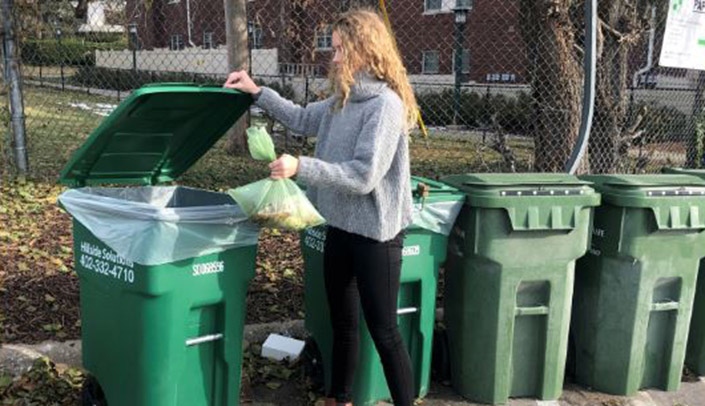Food waste happens at all parts of the supply chain: post-harvest waste, items lost in transportation, grocery stores throwing out food and consumers (us) throwing out food before it’s prepped or that we don’t eat.
A major culprit in food waste is confusion regarding what’s OK to eat — “sell by,” “best by,” “use by” and “expires on” dates are not regulated by the FDA and can have different meanings depending on the manufacturer. Generally, those dates are conservative, and measure when the food is at its peak, not when it goes bad.
So how much food is wasted? According to the National Resources Defense Council:
- 40% of the food in the U.S. is never eaten.
- (That’s 300 pounds per person each year.)
- The average family of four throws away $1,800 worth of food each year:
- At a total cost of $218 billion; and
- While one in eight Americans don’t have enough food to eat (pre-pandemic numbers).
- 90% of us throw food away too soon
- In the landfill, food waste produces harmful methane, accounting for approximately 11% of worldwide greenhouse gas emissions.
A few simple steps can help you save money and prevent food waste. Store food properly and then consider these actions. Your wallet and the planet will thank you.
Prevention of waste is always best, but when mistakes happen, there’s composting. You can compost many food items at home, and we have a three-part article series and a webinar to get you started.
If composting isn’t for you, you don’t have a yard or you want to compost items that can only be composted commercially (pizza boxes, meat/dairy products, dog poo, etc.), there’s a relatively new option called the Compost Club. Individuals pay (with discounts for students/teachers/seniors/veterans/active military) to have the ability to drop off materials to be composted.
The med center is proud to be one of the drop-off locations for Compost Club participants. Compost can easily be dropped off on your way in to work or school in one of the green totes located on the east end of lot 15 (by the Student Life Center and the College of Public Health). Numerous other locations are available across the metro area.
Not only do you prevent methane, compost is nutrient-rich and can help store carbon — a win-win! As part of the membership, you get compost back to use in your garden, or you can donate it to a community garden.
